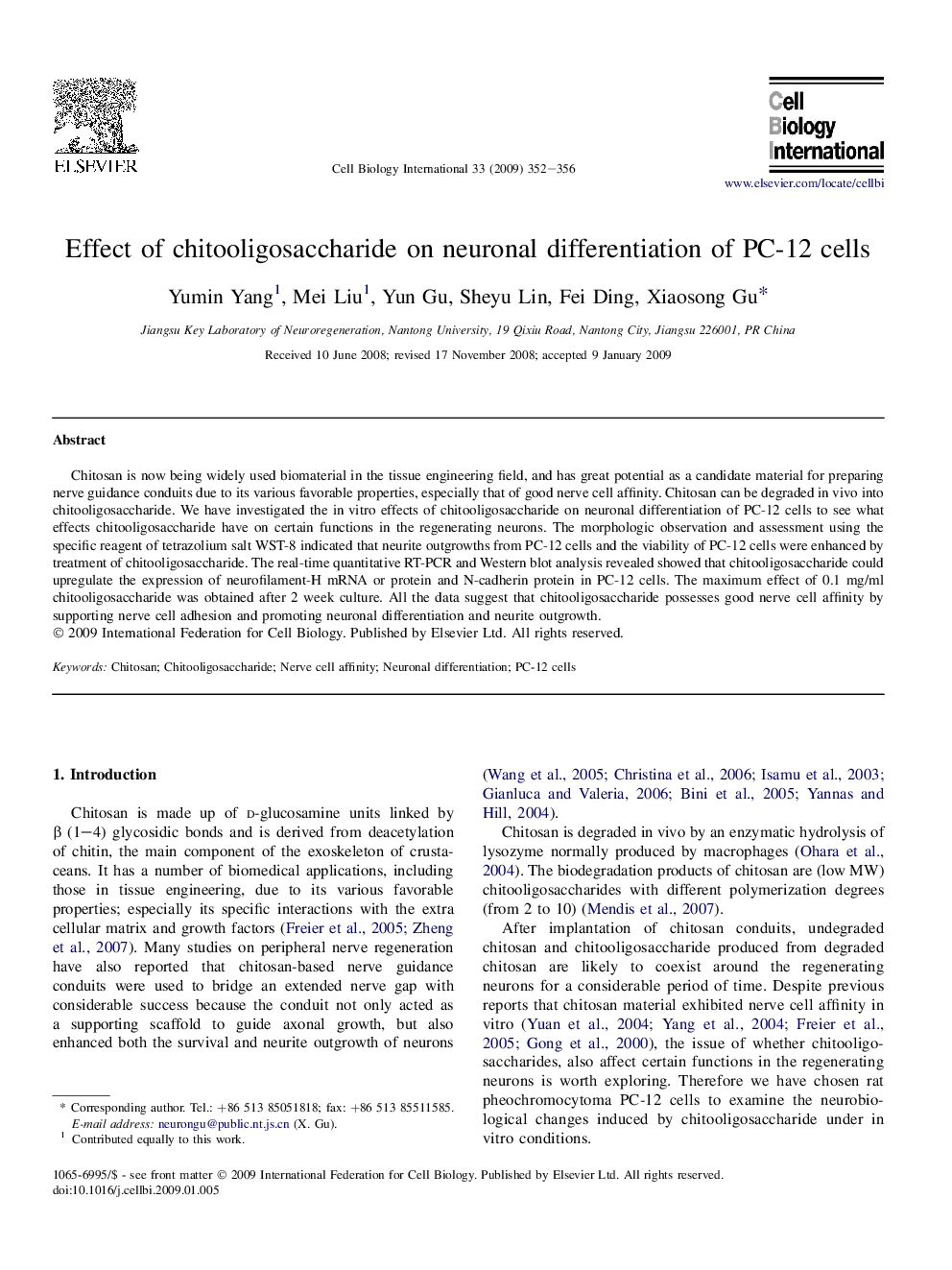| Article ID | Journal | Published Year | Pages | File Type |
|---|---|---|---|---|
| 2067180 | Cell Biology International | 2009 | 5 Pages |
Abstract
Chitosan is now being widely used biomaterial in the tissue engineering field, and has great potential as a candidate material for preparing nerve guidance conduits due to its various favorable properties, especially that of good nerve cell affinity. Chitosan can be degraded in vivo into chitooligosaccharide. We have investigated the in vitro effects of chitooligosaccharide on neuronal differentiation of PC-12 cells to see what effects chitooligosaccharide have on certain functions in the regenerating neurons. The morphologic observation and assessment using the specific reagent of tetrazolium salt WST-8 indicated that neurite outgrowths from PC-12 cells and the viability of PC-12 cells were enhanced by treatment of chitooligosaccharide. The real-time quantitative RT-PCR and Western blot analysis revealed showed that chitooligosaccharide could upregulate the expression of neurofilament-H mRNA or protein and N-cadherin protein in PC-12 cells. The maximum effect of 0.1Â mg/ml chitooligosaccharide was obtained after 2 week culture. All the data suggest that chitooligosaccharide possesses good nerve cell affinity by supporting nerve cell adhesion and promoting neuronal differentiation and neurite outgrowth.
Related Topics
Life Sciences
Biochemistry, Genetics and Molecular Biology
Biophysics
Authors
Yumin Yang, Mei Liu, Yun Gu, Sheyu Lin, Fei Ding, Xiaosong Gu,
